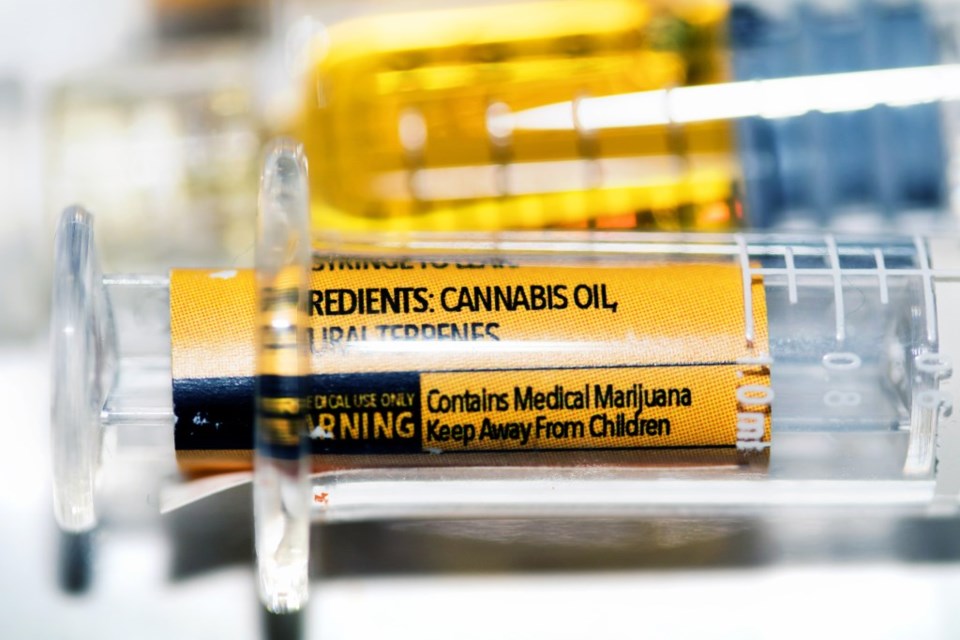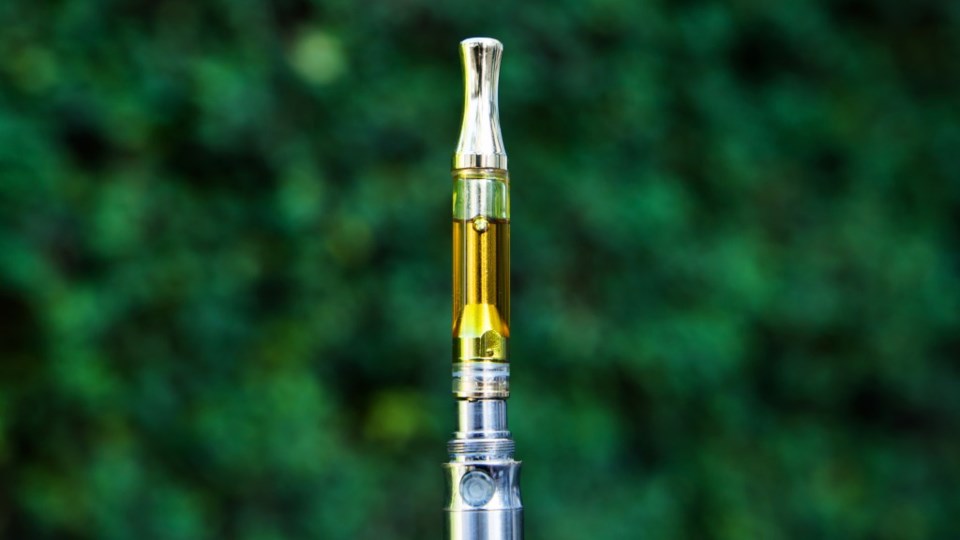Young people who use THC products in Collin County are finding out the hard way that marijuana and liquid THC are not the same thing. The first is a minor crime that Texas has long struggled to control. Texas law treats the latter with much less leniency.
When it comes to tetrahydrocannabinol, or THC—the main psychoactive chemical in marijuana that gets people “high”—the law in Texas leaves little wiggle room, and possession of even the smallest trace of liquid THC is classified as a felony. To the chagrin of local experts, THC use by local youth has seen a sharp rise in recent years, and their families and communities are paying the price.
This is a story about criminal records, reputations, and privileges. It is a story about haves and have nots, about new forms of old drugs, about changing attitudes and the need for changing laws.
If they are lucky, the haves get a learning opportunity and a big lawyer’s bill. If they are unlucky, the have nots may end up losing their chance at college, or worse, serving jail time with a felony on their permanent record. Whether or not people see THC as a serious issue, it does not have to be a gateway drug to ruin a young person’s life…or at least to put success on hold for a few years.
Despite changing attitudes, increased legalization, and decriminalization of marijuana across the nation, Texas has been slow to change adopt more lenient policies toward THC and marijuana.
On the bright side, as Local Profile reported in April, the Plano Police Department recently changed policies and stopped arresting people for small amounts of marijuana possession and paraphernalia, which are considered misdemeanor crimes. However, when it comes to THC possession, an ordinary night out with friends can easily turn into a rigamarole that can stretch over years.

Take for instance one Collin County youth, who agreed to be interviewed for this story on the condition of anonymity. He was 17 years old when police found an unopened, unused THC cartridge in his pocket. It happened late one night when the friends he was riding around with made a wrong turn and got pulled over.
He was relatively new to vaping THC when he got caught, but he said he started smoking marijuana at 14 and smoked pot daily by 17. Teenagers used THC regularly at his high school. Kids would bring vapes to school and smoke THC in the bathroom, in class, and during lunch. Anybody and everybody was using the drug, he said.
The warrant for his arrest on the felony drug charge arrived at his parent’s home six months later, one week before his high school graduation. He had not told his parents about the arrest and was terrified of disappointing them.
“I had no idea that it would be a felony. I thought my life was over,” he said. “My life was just barely starting, and I already have something to set me back.”
Now 20, the young man is finally about to finish the paperwork for his felony charge to be expunged from his permanent record. He said his parents have spent nearly $7,000 in legal fees and charges for him to attend substance abuse classes and have monthly drug tests to prove he is not using drugs. He has new friends, is excelling in his second year at an area community college, and is waiting until his record is clean to apply to a 4-year college. He wants to be a clinical psychologist. He said he has not talked to the two friends he was with since the night he was caught with the THC vape cartridge.
This is a common scenario for many local teenagers—and their parents—who find out the hard way that Texas is very strict, even behind the curve, where drug laws governing THC are concerned.
Fortunately, most young people caught with THC the first time are able to work through the legal system and avoid permanent damage to their records and reputations. Everyone interviewed for this story agreed there has been marked growth in its use by local youth in the past 5 years.

Combating the growing use of THC by youth
Collin County Substance Abuse Program (CCSAP) Administrator John-Mark Meulman knows all too well the costs of drug use to families and communities. In long term recovery from alcohol abuse himself, Meulman has an adult son who has struggled with addiction and served multiple jail sentences as a result. Recently, Meulman caught his 17-year-old stepdaughter using a THC vape.
She explained she was using THC to treat depression and insomnia, but he said the drug was actually making the problems worse, not better.
“I’m a substance abuse counselor, and it was going on right in my house,” Meulman said. “The cartridges are really small, the smell is pretty insignificant, and kids will hide it. It’s devious.”
A recent CCSAP memo describes the increase in youth marijuana and THC use as an “epidemic.”
Although many of the young people Meulman counsels at CCSAP argue THC is natural because it comes from the marijuana plant, he said that is a misconception. He explained THC products sold on the street are manufactured in labs and are far more severe and more dangerous.
Further complicating the issue is the fact that 17-year-olds are considered adults in Texas and face adult penalties, including potential jail time if the felony charge holds in court. According to
state law, possession THC, even in trace amounts that are detectable at the state crime lab, is punishable by up to two years in jail and $10,000 in fines.
THC is a growing problem for Collin County—a growing and prosperous area. As Local Profile reported in December 2020, Collin County’s population has experienced rapid growth in recent years. Plano is regularly named among the top cities in nation, recognized for its high median income and low rate of violent crime.
The most recent U.S. Census reports Collin County’s population is more than 1 million, a more than 30 percent jump in the last decade. More than 50 percent of residents 25 and older have a 4-year college degree, and the median household income is nearly $97,000. In comparison, the national median household income is $65,700, and only 33 percent of the country’s adult population has a 4-year college degree or higher.
Liquid THC products come into Texas from neighboring states that have legalized marijuana use. Street dealers sell THC in pinky finger-sized vape cartridges, gummies, and waxy, oil-based dabs smoked through intricate glass pipes. Add peer pressure to the mix, and it is easy to understand THC’s appeal for teens.
Young people are using THC in small amounts to cope with the stresses and pressures of being kids, said District Judge Cynthia Wheless. She said the affluence of Collin County can add unique pressures to growing up in the area. She blames the bullying and harassment kids face on social media too.
“It’s hard to be a kid,” Wheless said. “I think THC is a canary in the coal mine, a reaction to the pressures.”
Wheless said it is important to understand that the surge in THC use and law enforcement’s response to it is “a problem that is really, solely born by kids.” She said young people are “like sitting ducks” who have “no idea they are walking into a trap” when dealers convince them to buy THC cartridges.
The average youth charged with a THC-related felony in Collin County ranges in age from 15-22, has no previous criminal record, and comes from a stable environment. They are cheerleaders and athletes, rich kids and poor kids, and they span racial and ethnic lines.
Often, the youth who get caught with THC, or “popped” in the words of Plano criminal defense lawyer Casey Davis, do not seem like endangered kids.
Around 2016, Davis noticed an upswing in legal business representing teenagers facing THC charges. It was becoming the drug to use, and it was really easy to get.
Davis described the tough sentencing for THC possession as a “waste of law enforcement resources.” She called the felony charge for THC a “tragedy” that interferes with kids’ lives and has wrongly resulted in some local teens over 17 serving time in state jail.
“All of these kids are at a point in their life when it really matters. They’re good kids, they make good grades, they are college bound and have great parents,” Davis said. “The commonality is everyone is shocked their kid is facing a felony.”
Davis said that even though she does not use THC, she would lobby the state legislature to change the laws regarding THC if she had the free time. She said the punishment is too harsh for too many kids. This new trend of youth THC use is “out of control” in Collin County, Davis said, but it is different than the heroin epidemic that plagued Plano in the 1990s and led to overdose deaths of dozens of local teens.
Collin County’s District Attorneys must agree on some level that the penalty for THC is too harsh, Davis said, because they provide a lot of outs for young people charged with possession.
Youth can avoid pleading to felonies through participation in pretrial diversion programs or by going through the county’s drug court that helps kids find their way out of trouble. If they do not stay clean, however, they face serious consequences, including jail time if they are more than 17-years-old.
Plano-based criminal defense lawyer Todd Shapiro said in the past 5 years, he has seen a 10-fold rise in cases of young people facing THC charges.
Shapiro has seen kids pulled out of schools by law enforcement and facing school suspensions. Those caught using in schools not only have to contend with a felony charge for THC use, but they also often face a second felony charge for using in a Drug Free Zone.
“You got a kid that has 10 gummy bears, it’s a felony. It’s the same as murder,” Shapiro said. “Texas is behind in this issue.”
Texas has some of the nation’s harshest marijuana penalties and highest arrest rates for possession of the drug. This year, Texas House Speaker Pro Tempore Joe Moody, D-El Paso, proposed legislation that would have reduced the penalty to a misdemeanor for first offenses involving THC possession of up to 2 ounces. However, the legislation stalled in the Senate in May and never reached the governor’s desk for signing.
Dealers market THC on social media using code words such as “broccoli,” “dew,” “fuel” and “gas.”
At CCSAP, Meulman said he knew of one teenager whose mother followed her son’s social media activity and repeatedly gave him gas money because he kept posting about running out of gas. It turned out she was unintentionally feeding her son’s drug habits and giving him money to buy THC products.
Davis said parents need to know that if they see their kid using a vape pen, they are probably using THC.
“Somebody should go on the public announcement system in Plano and say, ‘Hey you guys, this is a felony,’ and they’d stop using,” Davis said.
This article appeared in the 2022 January/February edition of Local Profile's print magazine.




